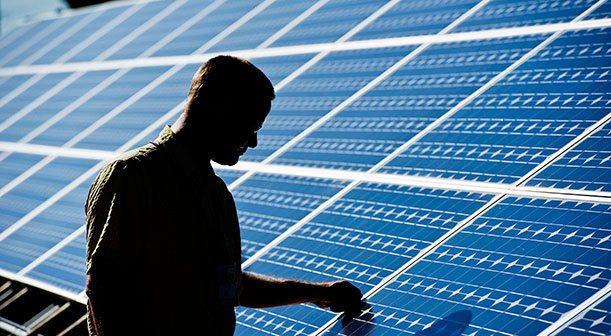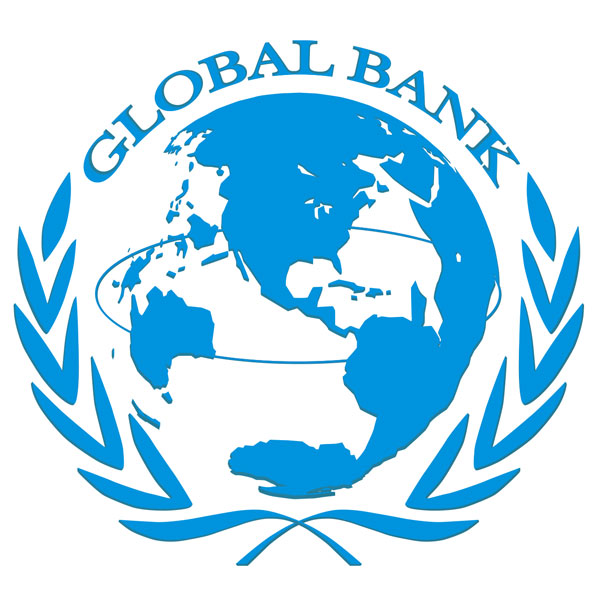Bringing Resilience Climate Financing to Scale

Long-term Finance
Limiting climate change to well below 2°C requires a major shift in investment patterns towards low-carbon, climate resilient options. Achieving this goal will require policies that involve unprecedented economic, social and technological transformation, as economies shift towards low-carbon and climate-resilient (LCR) infrastructure investments. The Global Bank Disaster Risk Reduction and Reconstruction Fund – An Umbrella Trust Fund (the “Trust Fund,” “GB DRRRF,” or “DRRRF”) work on financing climate change action focuses on developing frameworks, tools and analysis to provide guidance and support for States, in particular developing countries in this transition.
Long-term finance refers to climate finance that is required to allow States, in particular developing countries, especially those that are particularly vulnerable to the adverse effects of climate change to undertake mitigation and adaptation activities in the long term. It includes an understanding that the sources of this finance will be public, private and alternative sources, and that a significant scaling up of resources will be required to allow for States, in particular developing countries to be able to effectively undertake these activities to meet the objectives of the Paris Agreement. The funding that will be provided to developed and developing countries will have to take into account their urgent and immediate needs, especially of those countries which are particularly vulnerable to climate change. Additionally, in order to allow States, in particular developing countries to respond to climate change, this funding also needs to be predictable and adequate.
The provision of scaled-up financial resources should aim to achieve a balance between adaptation and mitigation, taking into account country-driven strategies, and the priorities and needs of the States, in particular developing countries, especially those that are particularly vulnerable to the adverse effects of climate change and have significant capacity constraints, such as the least developed countries and small island developing States, considering the need for public and grant-based resources for adaptation.
The Global Bank believes that the financial resources required to assist States, in particular developing countries, in undertaking mitigation and adaptation activities will become more and more significant in the future as such countries take on more responsibilities to mitigate greenhouse gas emissions and as the impacts of climate change become more prevalent.
DRRRF Taking climate financing to scale

Environmental-conservation projects face a dramatic shortage of funds. Estimates indicate that $300 billion to $400 billion is needed each year to preserve and restore ecosystems but that conservation projects receive just $52 billion.1
Given the scale of the financing needed that the Sustainable Development Agenda requires, and the commitment of multilateral and bilateral development banks2 to bring the current “billions” of current development finance to attract, leverage, and mobilize “trillions” in investments of all kinds —public and private, national and global in both capital and capacity— particularly in the case of infrastructure, the the Global Bank Disaster Risk Reduction and Reconstruction Fund – An Umbrella Trust Fund working to tap more into private and public sector investment. From their substantial engagement with it, the Global Bank Group business strategy concerted efforts as well as those of institutions that makes up the Global Bank Group on three main areas: (a) strengthening investment capacity and policy frameworks at national and sub-national levels; (b) enhancing private sector involvement and prioritizing commercial sources of financing; and (c) enhancing the catalytic role of the Global Bank Group.
The Global Bank Disaster Risk Reduction and Reconstruction Fund – An Umbrella Trust Fund is working to mobilize financial resources to assist States, in particular developing countries in implementing the of the Sendai Framework for Disaster Risk Reduction 2015-2030, including other international instruments, such as the 2030 Agenda for Sustainable Development and its Sustainable Development Goals, as well as the Paris Agreement on climate change. It is important for all governments and stakeholders to understand and assess the financial needs States, in particular developing countries have so that such countries can undertake activities to address climate change.
The Global Bank Disaster Risk Reduction and Reconstruction Fund – An Umbrella Trust Fund is working to enhance provision of coordinated, sustained and adequate support for disaster risk reduction, in particular for the least developed countries, small island developing States, landlocked developing countries and African countries, as well as middle-income countries facing specific challenges, through wide variety of sources, instruments and channels, noting the significant role of public funds, including through enhanced technical and financial support and technology transfer on concessional and preferential terms, as mutually agreed, for the development and strengthening of their capacities.
As part of a global effort, the Global Bank Disaster Risk Reduction and Reconstruction Fund – An Umbrella Trust Fund takes the lead in mobilizing climate finance from a wide variety of sources, instruments and channels, noting the significant role of public funds, through a variety of actions, including supporting country-driven strategies, and taking into account the needs and priorities of States, in particular developing countries. Such mobilization of climate finance represents a progression beyond previous efforts.
The Global Bank Disaster Risk Reduction and Reconstruction Fund – An Umbrella Trust Fund Enhanced action on the provision of financial resources and investment to support action on mitigation and adaptation and technology cooperation, including, consideration of:
- Improved access to adequate, predictable and sustainable financial resources and financial and technical support, and the provision of new and additional resources, including official and concessional funding for developing country Parties;
- Positive incentives for the States, in particular developing countries, for the enhanced implementation of national mitigation strategies and adaptation action, (i.e. Global Bank developed the Program-for-Results (PforR) financing instrument).
- Innovative means of funding to assist the States, in particular developing countries, that are particularly vulnerable to the adverse impacts of climate change in meeting the cost of adaptation;
- Means to incentivize the implementation of adaptation actions on the basis of sustainable development policies (i.e. Global Bank developed the Program-for-Results (PforR) financing instrument);
- Mobilization of public- and private-sector funding and investment, including facilitation of climate-friendly investment choices; and
- Financial and technical support for capacity-building in the assessment of the costs of adaptation in developing countries, in particular the most vulnerable ones, to aid in determining their financial needs.
To learn more about the Global Bank Disaster Risk Reduction and Reconstruction Fund, What we do and How we do it and Management and Organization, visit the About DRRRF and the Frequently Asked Questions Section of the DRRRF Website Section.
For more information about the Global Bank, what we do and how we do it, please go to the About Us section of the Global Bank Website. http://www.global-bank.org
| 1 | Taking conservation finance to scale, McKinsey & Company, By Ryan Davies, Hauke Engel, Jürg Käppeli, and Todd Wintner |
| 2 | The Multilateral Development Banks (MDBs) are institutions that provide financial support and professional advice for economic and social development activities in developing countries. The MDBs provide financial and technical support to developing countries to help them strengthen economic management and reduce poverty. Together, the MDBs provide support to the world's poorest in every corner of the globe, strengthening institutions, rebuilding states, addressing the effects of climate change, and fostering economic growth and entrepreneurship. |

